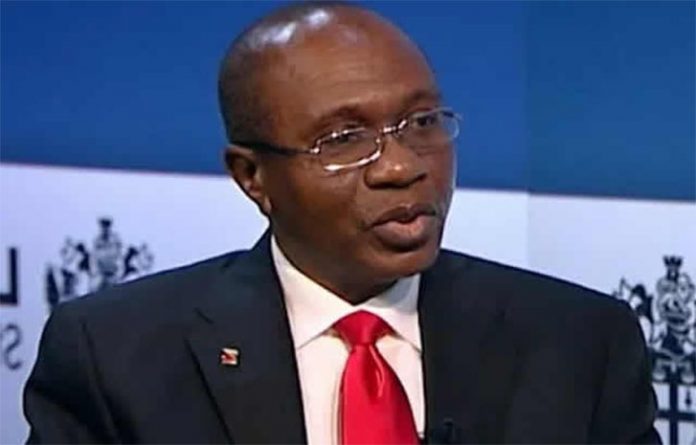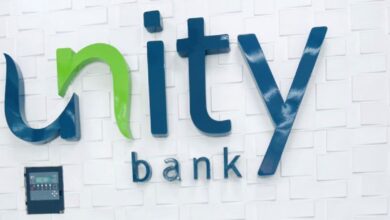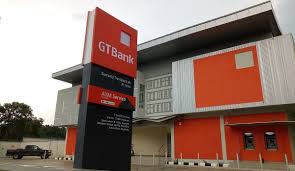Unconventional Monetary Policies Lifted Nigeria Out Of Recession – Emefiele

The recovery by Nigeria from economic recession, her worst economic predicaments in 27 years, was not without the application of unconventional monetary policies by the Central Bank of Nigeria (CBN).
These unconventional or heterodox policies, according to the Governor, Central Bank of Nigeria (CBN), Godwin Emefiele, received condemnations from critics who believed that applying unconventional means will further worsen Nigeria’s economic woes.
Emefiele disclosed this at the weekend as the Guest Lecturer of the first Distinguished Leadership Lecture Series of the University of Ibadan.
Speaking on the theme, “Up Against the Tide: Nigeria’s Heterodox Monetary Policy and the Bretton Woods Consensus.” Emefiele said since the global financial crisis, many central banks have begun to promote structural transformation and economic growth, beyond the singular mandate of price stability.
He said the CBN’s experience with heterodox policies expanded during the recent economic crisis that begun in 2014 due to a number of global shocks, three of which were simultaneous and significant in shaping the trajectory of the Nigerian economy.
These, he said, are widespread and rising geopolitical tensions along critical trading routes in the world, softening crude oil prices and normalisation of monetary policy by the US Fed.
The most important of these factors to impact the Nigerian economy, according to him, was the plunge in crude oil price.
Nigeria’s overdependence on crude oil for over 60 per cent of fiscal revenue and over 90 per cent of FX inflows meant that shocks in the oil market were transmitted entirely to the economy via the FX markets as manufacturers and traders who required FX for input purchases were faced with dwindling supplies.
At the time, he said, the average monthly inflows of FX into the CBN fell from over $3.4bn in June 2014 to a low of $1.4bn in September 2016.
“This decline in FX earnings was further complicated by the foreign capital flow reversals due to rising yields in the USA as the impact of these on our economy was evident in the rising pressure on the naira-dollar exchange rates.
“With the drop in FX inflows, the exchange rate at the parallel market rose from about N200/$ in August 2015 to N525/$ in February 2017. Inflation also rose from 9.6 per cent in January 2016 to over 18.7 per cent in January 2017. Our external reserves fell from about $31 billion in April 2015 to $23 billion in October 2016, and activities in the industrial sector witnessed a lull as manufacturers struggled to get access to key inputs needed in the production process”, he said.
Other vulnerabilities include slowdown in government spending (following the fall in government revenue), build-up in the demand for foreign exchange, and high exposure of the banking sector to the oil and gas sector.
Driven largely by the downside effects of these shocks, real GDP growth plunged sharply from 6.2 per cent in 2014 to a 1.6 per cent contraction in 2016. Nigeria effectively slipped into a technical recession in the second quarter of 2016, and maintained negative growths in ensuing quarters of that year. Disaggregation of the 2016 outcomes showed the worst contraction of 2.4 per cent in quarter three and a turning point thereafter.
Having access the development, Emefiele said the CBN decided to employ the tool of unconventional policy measures to address the situation.
In a bid to contain rising inflation and to cushion the impact of the drop in FX supply on the Nigerian economy, the monetary and fiscal authorities took extraordinary measures to tackle these extraordinary challenges.
The CBN embarked on a cycle of tightening which culminated in a July 2016 hike in the Monetary Policy Rate from 12 per cent to 14 per cent. This decision was expected to rein in expected inflationary pressures that may result from exchange rate pass-through to domestic prices and ensure that inflation expectations are well anchored. It was also expected to stimulate increased capital inflows to the country, which should improve accretion to reserves.
The bank also introduced demand management approaches to conserve reserves and support domestic production of certain goods in Nigeria.
“In this regard, we analyzed our import bill, and encouraged manufacturers to consider local options in sourcing their raw materials, by restricting access to foreign exchange on 41 items (now increased to 43). Four of these items alone constitute over N1 trillion of our annual import bill”, he added.
In April 2017, the bank introduced Investors and Exporters (I&E) window, which allowed investors and exporters to purchase and sell foreign exchange at the prevailing market rate.
In addition, exchange rate management was further liberalised following the operationalisation of the “Revised Guidelines for the Operation of the Nigerian Inter-bank Foreign Exchange Market” in June 2016. The commencement of this policy guideline introduced the Naira Settled Foreign Exchange Futures Market.
The weakening of the Naira, following the shift to a more flexible foreign exchange mechanism along with the exposure of several banks to the oil and gas sector, impacted somewhat on the balance sheets of domestic banks.
The CBN increased its lending to the agricultural and industrial sectors, through targeted intervention schemes such as the Anchor Borrowers Programme, Commercial Agricultural Credit Scheme and the Real Sector Support Facility.
In particular, we sought to improve domestic supply of four commodities (rice, fish, sugar, and wheat), which consume about N1.3 trillion annually in our nation’s import bill.
The Anchor Borrowers Programme (ABP) which was launched in November 2015, was designed to build partnerships between small holder farmers and reliable large-scale agro-processors, with a view to increasing agricultural output, while improving access to credit for farmers.
“Our targeted focus on the agricultural and industrial sectors was driven by the vast opportunities for growth in these sectors given our high population. It was also instrumental in taking Nigeria out of the recession. In 2017, over 50 per cent of the contributions to GDP growth came from the agriculture and industrial sectors.
These sectors have the ability to absorb the growing labour pool of eligible workers in our effort to meet the household consumption needs of the Nigerian populace. If efforts were made to improve productivity gains in these sectors, it will reduce our dependence on imported items that could be produced in Nigeria.
Furthermore, improved productivity in the agriculture and manufacturing could also help in reducing our dependence on proceeds from crude oil.
Noticeable successful outcomes of the application of unconventional monetary policies are gleaned from improvement in GDP, Inflation, external reserves, success of Anchor Borrowers Programme, significant growth in industrial sector and spectacular improvements in domestic production of most of the targeted items.
While many of these measures were an attempt at using unconventional tools to mitigate the effects of a slowdown in growth, they were initially criticized by adherents of conventional monetary policy tools.
In the view of some critics for instance, the FX policies constitute exchange restrictions, rationing of FX, discretionary allocation based on priority categories, and a multiple currency practice.
“Many are also unaccepting of our 41 items restriction and its recent increase to 43 items, regardless of its apparent successes. While there is sufficient evidence of significant reductions in our annual import bill, increased non-oil output and exports, and a robust BOP position, these critics assert that we are restricting trade and creating unfair competition.
“To our critics, who are against the imposition of the FX restrictions, conventional Monetary Policy requires that to encourage domestic production, we should impose higher tariffs and levies. However, our experience in Nigeria has shown that this practice has never worked due to certain inefficiencies in attaining these objectives.
“Our development finance initiatives in growth driving and employment generating sectors have equally not gone down well with the proponents of conventional monetary policy tools. While they acknowledged our measures have had a positive impact on output and employment, they assert that these tools constitute quasi-fiscal activities. They also maintain that implicit interest rate subsidies can have distortive effects on resource allocation.
“Our argument for the unconventional Monetary Policy approach has always been that just like fiscal, monetary Policy could, at a time when development challenges abound, complement the efforts of the fiscal in employment generation, wealth creation and attainment of other growth objectives.
Regardless of these scathing views and critiques, the fact remains these unorthodox policies were well conceived.
Source: Daily Independent





